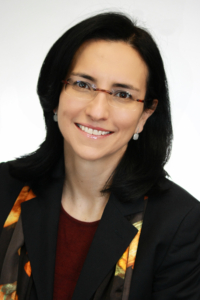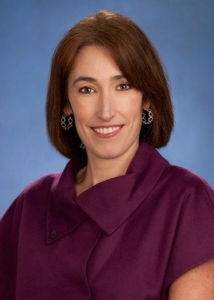Welcome to The Glass Hammer’s “Women in Tech” month! We will be celebrating successful women in technology all month long!
Justine Chen, senior manager at SunGard Consulting Services is deeply committed to getting more women interested in technology careers. Through her current role, Chen participates in a lot of community outreach and as a result, she took a particular interest in the organization, Girl Develop It, which offers courses for women who want to learn technical skills.
“I made a connection at GDI who introduced me to the film, Girl Rising, a documentary about the education of girls in several developing countries,” explained Chen, who organized screenings of the film at many SunGard offices in honor of International Women’s Day.
“This collaboration has been so rewarding and it is an empowering feeling to be involved with spreading a positive message about technology to young women and girls across the globe,” Chen said.
Career Path
Chen grew up in Taiwan and moved to Canada after high school. She explained that in Taiwan the education system requires students entering senior high school to declare an area of study. Chen had always been drawn to logic and problem solving, so naturally these interests pointed her in the direction of engineering. “This was the first step toward my career in technology,” said Chen, who continued to study engineering when she was at university in Canada.
After graduating from college, Chen accepted a position at a traditional engineering consulting firm working on a system that would commission commuter ferries in Washington. While Chen enjoyed this experience, she sought a role that would give her the opportunity to interact more with the public as opposed to focusing so much on back end developing.
“This put me at a crossroads early on in my career where I had to decide to pursue opportunities on the East coast or stay on the West coast. Ultimately, I was drawn to the East coast and started working as a java developer for a search company right as the internet was becoming extremely popular,” Chen explained.
As a result of the increasing popularity of the web, companies were looking to design more interactive and dynamic websites. Chen, who found herself in the right place at the right time, was asked if she wanted to learn the programming languages that were emerging at the time. “I entered that field and I have been working on web technologies ever since,” Chen noted.
According to Chen, the changes within the web technologies field that have taken place over the last few years have created such a dynamic environment offering opportunities for people from all walks of life. In the past, she explained, web technologies primarily attracted computer science majors. Now, more and more people entering the field are self-taught programmers and developers who are bringing an entirely different skill set to the table.
Selected as SunGard’s rising star for the Women’s Bond Club in2013, Chen continues to make significant contributions in her current role as a senior manager at SunGard Consulting Services. “In addition to my daily responsibilities, I am working on a new business solution through SunGard Consulting Services solution proposal competition held each year that encourages us to think outside the box,” said Chen.


